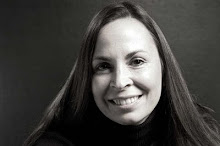TEACHER AND STUDENT WORKSHOPS
"GIRL TIME: A Playshop for the Emerging Goddess"
An all-day workshop or a week-long camp designed for tween girls (Ages 9 - 11 and 12 - 14). Combining yoga and arts-based activities, tween girls "unplug" and make discoveries about themselves: who they are and who they want to become. Activities include yoga, music & dance. The theatrical skits in which they will take part will present them with issues tweens face on a daily basis (i.e. popularity, social media, FaceBook, friendship, etc.), and are designed to encourage discussions and reflection through journal writing. Some of the art activities include collage, personalizing yoga mats, making jewelry, making natural beauty products. Girls experience and enjoy the preparation of healthy food, discuss positive eating habits, and how to think positively about food. The goal of the workshop is to help girls learn and develop valuable skills to help them interact with their world in positive ways.
"Piaget’s Stages of Cognitive Development for Music Teachers: A Workshop Presentation"
A three-hour workshop designed for applied music teachers within a music conference or continuing education setting. Knowledge of cognitive development states is applicable to all applied music areas (i.e. flute, oboe, percussion, etc.) because children often learn to play a musical instrument in a school band program between the ages of 8 and 12. The goal of the workshop is two-fold.
DESCRIPTION OF THE PROJECT
The first goal is to provide music teachers with a better understanding of where their students are on the timeline of cognitive development. The second goal is to present teachers with ways this information can be utilized to maximize the strengths of the particular stage of cognitive development. The hope is that teachers will learn to identify the current cognitive levels of their students in order to avoid frustrating a music student with learning expectations that are only possible at later stages of cognitive development.
"Learning to Lullaby"
A hands-on workshop to teach at-risk mothers how to attach to their babies using traditional lullabies. Students learn lullabies and create Orff accompaniments using a baby rattle, a hand-made drum and a child's xylophone.
INTRODUCTION: A BRIEF DESCRIPTION OF THE PROJECT
Through musical composition, performance and recording, this project is designed to assist first-time mothers (primarily pregnant teens who are at-risk and at-risk mothers) in developing responsive parenting techniques that will help their babies bond to them. Through the composition of original lullabies, composition of Orff-inspired arrangements of traditional lullabies as well as education of basic musical concepts, mothers will learn how to interact with their babies through music. The program could be implemented through prenatal care clinics such as Planned Parenthood, public schools, or hospitals offering prenatal classes.
This project is important because at-risk mothers are statistically prone to develop neglecting-uninvolved parenting styles, which adversely affect a child’s development throughout the lifespan. Also, babies with mothers who have a neglecting-uninvolved parenting styles do not develop secure attachments to their mothers. This greatly impacts learning, language development and development of social interaction necessary for the child’s future. Learning to lullaby and/or learning how to make music with a baby, will provide mothers with parental interaction techniques that can positively affect their lives and the lives of their babies.
PRESENTATIONS
"Arts-based Instruction in the every day classroom"
Lecture presenting overwhelming evidence of how arts-based instruction improves classroom learning at all levels. The lecture discusses the advantages of using the different disciplines of Music, Dance, Drama and the Visual Arts to motivate students and apply knowledge to higher forms of thinking.
"Creating a Gender-friendly Music Classroom"
Boys and girls have different learning needs based on their physiology and mapping sequences. This talk presents ways classroom teachers can make a music classroom more gender-friendly thus increasing student success rate.
Subscribe to:
Comments (Atom)



